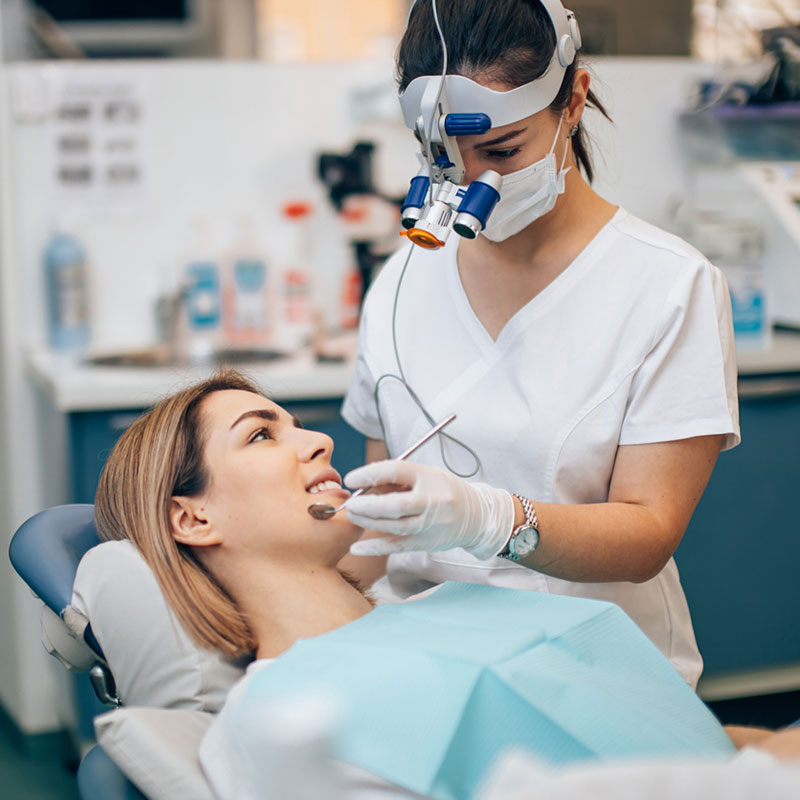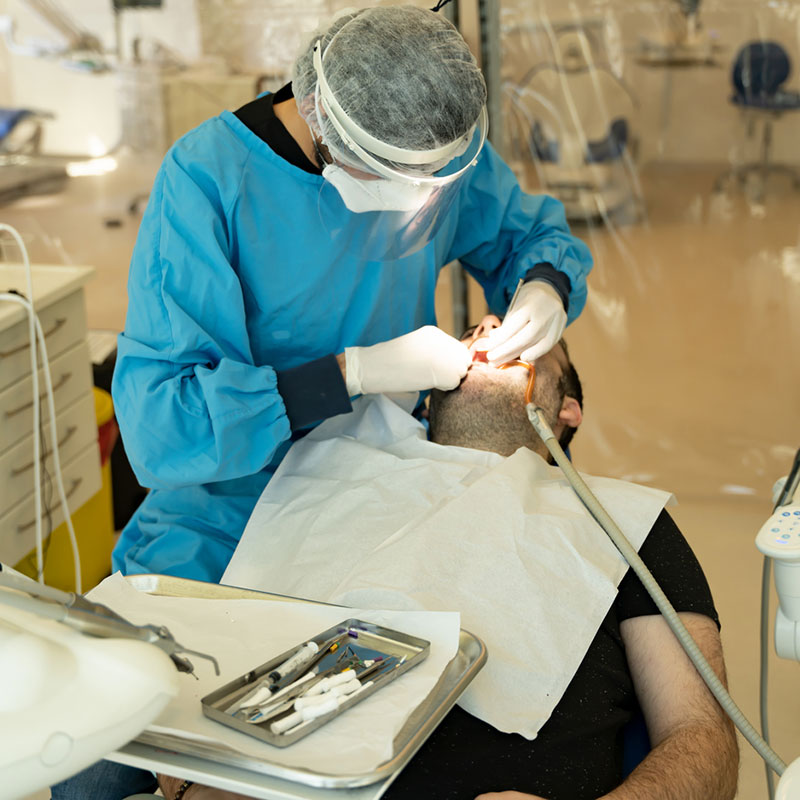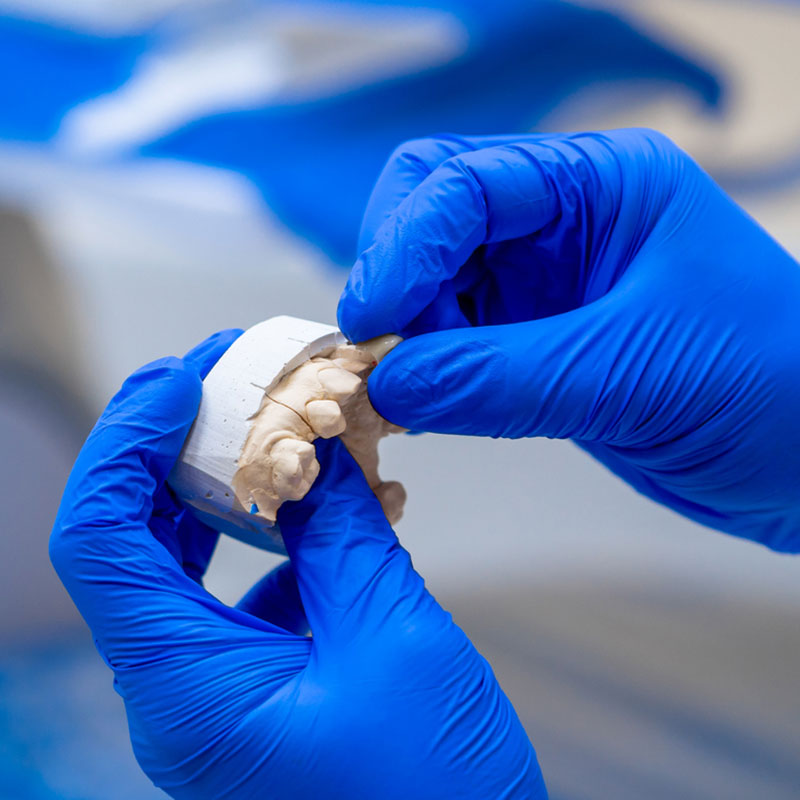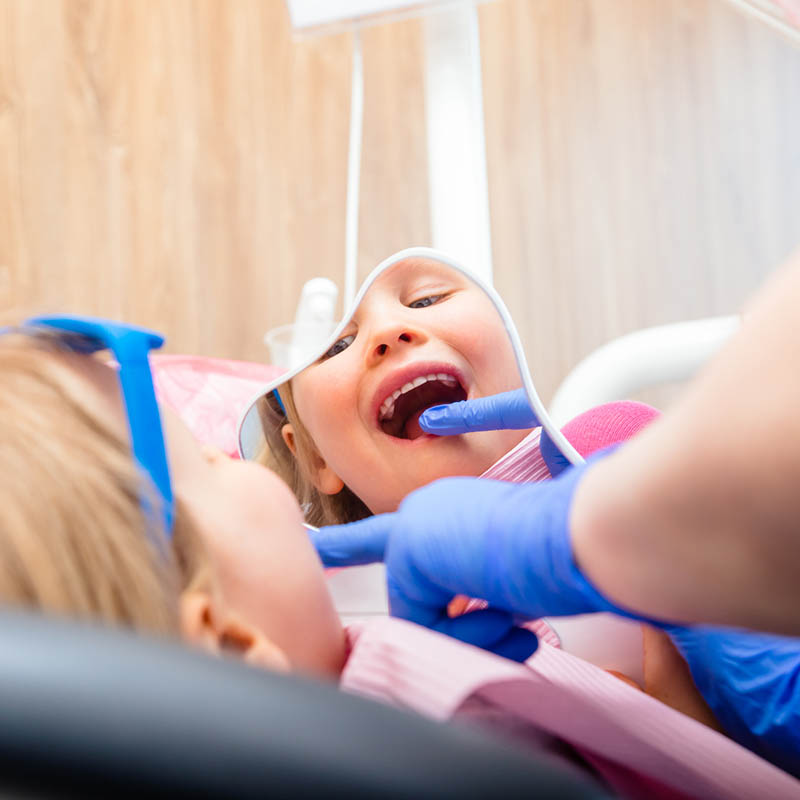
Specialized services for your dental needs.
At our practice, we believe in providing comprehensive, expert care for patients of all ages. With six convenient locations serving Eastover, Fayetteville, Hope Mills, Laurinburg, Raeford, and St. Pauls, our team of skilled dental professionals is proud to offer a full range of specialty services under one roof. From advanced oral surgery to modern dental sleep solutions, we’re here to ensure your family receives the highest level of dental care, close to home.
Oral Surgery
Oral surgery is sometimes necessary to correct issues related to the teeth, jaw, or mouth. At Village Family Dental, our oral surgeons are skilled in performing a variety of procedures, including wisdom tooth extractions, corrective jaw surgery, and biopsies. We ensure a safe and comfortable experience, using the latest techniques to minimize recovery time and discomfort.
Prosthodontics & Dental Implants
If you're missing teeth or dealing with damaged restorations, our restorative and implant dentistry services can bring back your smile’s function, comfort, and appearance. Whether you need a single crown or a full-mouth reconstruction, we combine prosthodontic expertise with advanced dental implant solutions to create natural-looking, long-lasting results.


Periodontics
Healthy gums are the foundation of a healthy smile. Our periodontal experts specialize in the prevention, diagnosis, and treatment of gum disease. We offer deep cleanings, gum grafting, and advanced laser therapies to help protect your oral and overall health.
Endodontics
When tooth pain strikes, our endodontic care can provide fast, effective relief. We perform root canal therapy using advanced equipment and pain management techniques to save teeth and eliminate infection while preserving your comfort.
Lip and Tongue Ties
Lip and tongue ties can affect feeding, speech, and oral development, especially in children. Our team offers gentle, laser-assisted frenectomies that are quick, precise, and virtually pain-free, promoting better oral function and long-term health. The average laser frenectomy procedure only lasts about 2-3 minutes and is virtually painless.
Orofacial Myology Therapy
This specialized therapy addresses improper habits like thumb-sucking, tongue thrust, and mouth breathing. Our certified Orofacial Myology specialists work with both children and adults to correct muscle function and support healthy oral development.


Dental Sleep Solutions
For those suffering from sleep apnea or other sleep-related disorders, our dental sleep solutions can help. We offer custom-made oral appliances that help alleviate snoring and prevent airway blockages during sleep. These devices are designed to reposition the jaw and tongue to ensure that your airway remains open, allowing you to breathe easily and enjoy a restful night’s sleep. We work closely with sleep specialists to provide a comprehensive approach to improving your sleep quality.
Referrals
Village Family Dental provides an easy and convenient way for referring doctors to submit our referral form for sleep apnea treatment. Once completed please fax it back to us at: (910) 485-8287. Click here: Sleep Solutions Referral Form
Contact Us
For more information about our Sleep Solutions, please contact:
Treacy Bodvig
